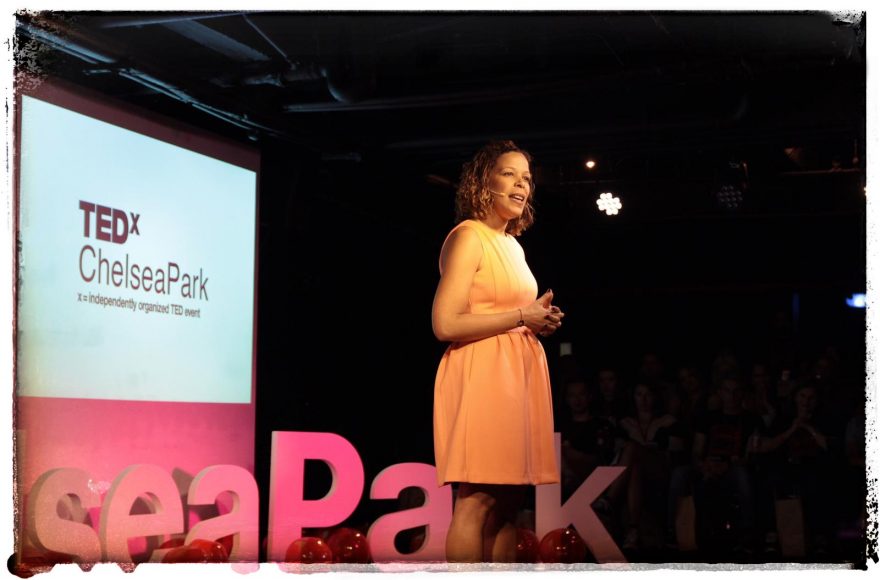For too long, the narrative of being ‘nice’ has dictated the paths available to women, both personally and professionally. Rooted in age-old traditions and deeply ingrained patriarchy, this expectation has subtly, yet powerfully, shaped the way women are perceived and how they perceive themselves. From the way we communicate to the jobs we aspire to, the ‘niceness’ norm has often kept us confined to lower-paying roles, away from the C-suite, and out of the history books. History tells us that well-behaved, nice women rarely make waves, but it’s time to question why. Is it because we inherently lack ambition, or is it because our assertiveness is often misconstrued as rudeness?
As a Chief Technology Officer and founder of 5xminority, Inc., I’ve come face to face with the stereotype of ‘niceness’ and its translation into an expectation for women to be accommodating and unassertive. This stereotype, while seemingly benign, has profound implications, especially in fields traditionally dominated by men, such as technology.
The tech industry, known for its rapid pace and groundbreaking innovations, requires a dynamic and assertive approach. However, when women are subtly encouraged to prioritize agreeableness over assertiveness, they may hold back their ideas and opinions. This not only hinders their professional growth but also deprives the industry of diverse viewpoints that could drive groundbreaking advancements.
In an environment where innovative thinking and diverse perspectives are key to success, the silencing of women’s voices leads to a homogenization of ideas, potentially stalling out-of-the-box solutions. This dynamic reinforces a cycle where traditional, singular approaches to problem-solving are favored over collaborative and multifaceted strategies. To truly thrive, the tech industry must not only welcome but actively seek out and nurture the unique insights and approaches that women bring to the table.
Implications in the Tech Industry
This stereotype of ‘niceness’ can lead to a significant underrepresentation of women in leadership roles within tech. Leadership qualities are often equated with being decisive, outspoken, and bold—traits unjustly seen as at odds with the traditional view of femininity. This creates a paradox where women in tech find themselves in a bind: either conform to the stereotype and risk being overlooked for leadership opportunities or defy it and potentially face backlash for not adhering to societal expectations.
In my experience, fostering an environment where women feel empowered to speak up and lead is crucial. This involves not only encouraging women to assert themselves but also redefining the organizational culture to value diverse leadership styles. It’s about recognizing that effective leadership can manifest in various forms, not just the stereotypically assertive manner often celebrated in the tech world.
This stereotype can affect how women’s contributions are perceived and valued in the workplace. When women present ideas assertively, they can be labeled as aggressive or difficult, whereas if they adhere to the ‘niceness’ norm, their contributions might be undervalued. This double standard poses a significant barrier to women’s advancement and can lead to a lack of diversity in thought and leadership.
To counteract these challenges, it’s imperative to cultivate a workplace culture that not only respects but actively encourages diverse perspectives and styles of leadership. Mentorship programs, leadership training, and inclusive policies can play a pivotal role in supporting women to break free from the ‘niceness’ narrative and embrace their full potential as leaders and innovators.
As we examine the impact of the ‘niceness’ narrative, it’s crucial for women in tech to engage in self-reflection (especially if you are, like me, a recovering people pleaser). This helps in identifying and addressing the subtle ways in which this stereotype may influence our professional lives. Below are several questions that I often take the time to ponder myself. These questions not only highlight the internal conflicts arising from the pressure to conform to traditional expectations of ‘niceness’ but also encourage a deeper understanding of how these dynamics affect our careers and personal growth in the tech industry:
- Am I downplaying my achievements to avoid being seen as boastful?
- Do I hesitate to speak up in meetings for fear of being labeled aggressive or bossy?
- Am I compromising my own ideas or values to fit into the expected mold of niceness?
- Am I avoiding leadership opportunities because I’m concerned about being perceived as too ambitious?
- Do I find myself excessively apologizing or justifying my decisions and opinions?
- Am I overworking to prove my worth, while my male counterparts are more easily recognized?
- Do I struggle with setting boundaries at work for fear of being seen as uncooperative or difficult?
- Am I reluctant to negotiate for better pay or a promotion because I don’t want to appear demanding?
- Do I often feel the need to soften my language or approach to be more palatable in a male-dominated workplace?
- Am I holding back from pursuing certain projects or roles because they don’t align with traditional feminine stereotypes?
Contemplating these questions can be a profound exercise in self-awareness, helping us to recognize and challenge the confines of the ‘niceness’ stereotype. As we become more conscious of these internal dialogues, we pave the way for a broader transformation. This introspection is a crucial step towards redefining strength and success, not just on an individual level, but across the entire landscape of the tech industry.
Redefining Strength and Success
In a world where women are often boxed into the role of the perpetual ‘nice girl,’ it’s time to redefine what strength and success look like. This redefinition isn’t just about altering perceptions; it’s about creating a tangible shift in how we value and recognize the contributions of women in the workplace and beyond.
Strength is not monolithic. It encompasses the courage to speak up, the resilience to challenge norms, and the wisdom to lead with empathy. Success, similarly, should not be measured solely by traditional metrics of assertiveness and dominance, but by the ability to inspire, innovate, and inclusively lead diverse teams. These qualities are essential in the ever-evolving landscape of technology and other male-dominated fields, where the richness of diverse perspectives drives progress and ingenuity.
“Women no longer have an ‘if I can’ mindset. Now it’s more about ‘how I can’— be in tech, start something in tech, fund something in tech. That shift is exciting! And it happened because we created a network where we show, daily, that women are innovating”
Shaherose Charania, Co-Founder and CEO of Women 2.0
As we embark on this journey of redefinition, it becomes crucial to support and amplify the voices of women who break the mold. We must celebrate not only their achievements but also their unique approach to overcoming challenges. By showcasing a wide array of female role models — from the assertive director to the empathetic team leader — we can begin to dismantle the outdated archetype of the ‘nice girl’ and replace it with a more nuanced, powerful image of womanhood.
This is more than a call to action; it’s a commitment to a future where the next generation of women in technology, and in all sectors, can see themselves not just as participants, but as leaders and innovators. A future where the strength of a woman is not defined by how closely she adheres to outdated stereotypes, but by how authentically she navigates her path to success.
By redefining strength and success, we not only empower women but also enrich our industries and societies. It’s time to embrace this broader, more inclusive vision — a vision where every woman has the opportunity to showcase her unique strengths and achieve success on her own terms.






2 comments